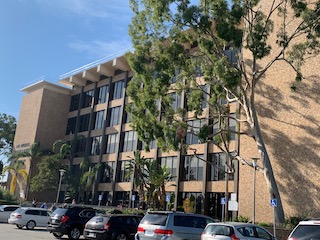The answer to the rhetorical question posed in the title to this article is yes. However, the judge retains discretion to still grant the request for expungement.
Summary in 50 Words or Less: A judge does have discretion to deny a request to expunge even a misdemeanor DUI conviction, reckless driving (Vehicle Code § 23103), engaging in a speed contest (Vehicle Code §§ 23109(a) and 23109(c)) and misdemeanor and felony hit and run (Vehicle Code §§ 20001, 20002), however, this discretion is rarely exercised in Los Angeles and Orange Counties.
In Los Angeles and Orange Counties, in twenty years of practice, I have filed petitions for dismissal (expungement) in probably fifty or more DUI matters. Never has a judge denied such a request.
However, in other parts of California, judges do understand that within “the expungement statute,” Penal Code §§ 1203.4(c)(1) and (c)(2) allows a judge to deny relief if one is convicted of certain offenses listed under Vehicle Code § 12810(a) to (e). However, section 1203.4(c)(2) states that the judge many exercise his or her discretion and act in the interests of justice nonetheless to grant expungement.
Vehicle Code § 12810(a) identifies Vehicle Code §§ 20001 and 20002. Section 20001 involves felony hit and run. Section 20002 involves misdemeanor hit and run.
Vehicle Code § 12810(b) specifies Vehicle Code section 23152, misdemeanor DUI, and section 23153, felony DUI.
Vehicle Code § 12810(c) specifies reckless driving, or a conviction under Vehicle Code § 23103.
 Torrance Courthouse
Torrance Courthouse
Vehicle Code § 12810(d) specifies a conviction under 191.5 or 192 under the Penal Code, which is gross vehicular manslaughter while intoxicated and involuntary manslaughter, respectively. It also specifies Vehicle Code §§ 2800.2 and 2800.3, which are felony evading a police officer and felony evading a police officer and causing injury or death. Subparagraph (d) further lists Vehicle Code § 21651(b), which is driving on the wrong side of the road. It also lists Vehicle Code § 22348(b), which is driving a vehicle on a road at over 100 miles per hour, as well as Vehicle Code § 23109(a) (engaging in a speed contest), 23109(c) (engaging in a speed contest on a public highway or aiding and abetting in such a contest), 23109.1 (engaging in a motor speed contest that results in injury or death to another person), or 31602 (unlicensed transportation of explosive substances.
Vehicle Code § 12810(e) specifies conviction under Vehicle Code §§ 14601 (driving on a suspended license after it was suspended for reckless driving), 14601.1 (driving on a suspended license), 14601.2 (driving on a suspended license after it was suspended due to a conviction for misdemeanor or felony DUI), 1460.1.3 (driving on a suspended license after being notified of the suspension and being designated a habitual traffic offender) and 14601.5 (driving on a suspended license after it was suspended at an admin per se hearing at the DMV for a DUI).
In other words, there are actually twenty exceptions to the seemingly “slam dunk” provisions of 1203.4 under which a judge “shall” allow a petitioner to withdraw and change his or her plea back to not guilty and the judge thereafter dismisses the complaint.
However, it merits mention that in many of the twenty little known exceptions to expungement (besides certain sex offenses and any non-probationary sentence in prison), defendant very likely did surrender and serve a state prison sentence. However, when the person did not serve a sentence in state prison, the judge nonetheless does have discretion to grant the petition for dismissal.
We therefore think that in preparing a petition for dismissal (expungement) of a DUI conviction that it is prudent to acknowledge that a judge does have the power to deny such a request, but that the judge also is allowed discretion to act in the interests of justice to grant such a request. Counsel should then explain to the judge, through supplemental points and authorities, with a declaration from the client, those facts that merit the judge exercising his or her discretion to grant the dismissal (expungement) in the interests of justice. The client may be experiencing unemployment due to the stigma of having such a conviction on his or her record, he or she may be locked into a low-paying job, or the client’s employer may not allow the client to travel abroad with such a conviction due to foreign restrictions on those with certain convictions (i.e. DUI in Canada).
We at Greg Hill & Associates incorporate these types of arguments into our petitions for dismissal (expungement) when the underlying conviction is for a DUI and judges seem to appreciate us acknowledging of the issue.
Contact us.  Torrance Courthouse
Torrance Courthouse